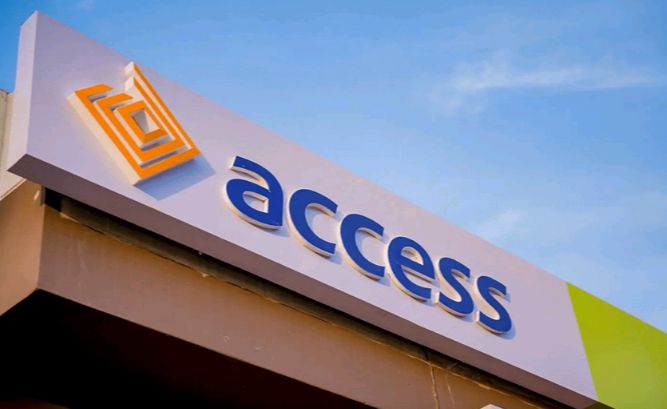It is no longer news that Access Bank has got $50 million from British International Investment (BII), the UK’s development finance group and impact investor.
This move aims to support Nigeria’s small and medium enterprises (SMEs). The money is part of a bigger $295 million loan package put together by FMO, the Dutch Entrepreneurial Development Bank.
The goal is to make Access Bank stronger and major supporter of SMEs across Nigeria. This includes businesses run by women and young people.

Nigeria, Africa’s most populated nation, houses almost 40 million Micro, Small, and Medium Enterprises (MSMEs), which account for about 96 per cent of all businesses in Nigeria and contribute 49 per cent to the country’s Gross Domestic Product (GDP), and employ 84 per cent of the country’s workforce (PwC MSME Survey 2020).
Even though they play a key role in the economy, these firms often struggle to get funding. They face high interest rates, tough collateral rules, and limited access to official credit. These roadblocks have held back many SMEs from growing, making it hard for them to expand their work or come up with new ideas.
The fresh infusion of capital from BII will help Access Bank tackle these issues by providing much-needed working capital and financing to Nigerian SMEs across various sectors, including farming.
Access Bank’s strategy goes beyond giving out loans; it supports these businesses through capacity building and networking opportunities, which are essential for sustainable growth.
Nigerian SMEs work in a tough environment characterised by the struggle to get funds and deal with poor infrastructure. These problems get worse because of macro-economic instability, such as fluctuating exchange rates and inflation, making it difficult for businesses to plan and execute long-term goals. Additionally, many SMEs lack the financial literacy needed to tackle the problem of formal financial systems, making them less attractive to traditional lenders.
Access Bank has a track record of supporting SMEs in Nigeria, with several success stories of how its investments have made a difference. For instance, in 2019, Access Bank provided a $10 million loan to a small-scale agricultural enterprise in northern Nigeria. This company used the funds to expand its business, purchase modern farming equipment, and improve its supply chain. This led to the business not only increasing its output but also creating over 500 new direct and indirect jobs in the local community. This case exemplifies how targeted financial support can drive growth and create employment in underserved regions.
Another example is Access Bank’s Womenpreneur Pitch-a-ton programme, the first women-in-business support initiative of its kind in the industry was offered by Access Bank, launched in 2019.
The programme, in its maiden edition, provided a free mini-MBA certification to 50 women entrepreneurs in Nigeria as well as financial grants worth N9 million to the top 3 applicants. This was done in conjunction with the International Finance Corporation (IFC), a member of the World Bank Group. Subsequently, the programme was extended to 10 other African countries where Access Bank’s W initiative has a presence.
The programme has since awarded the Mini-MBA training to 645 women entrepreneurs and provided over $175,000 in grants across Africa. This year hosts the 6th season of the Womenpreneur Pitch-a-ton in Nigeria and seeks to provide mini-MBA certification to another 120 women entrepreneur as well as grants worth over N17.5 million.
Economic Impact of Funding SMEs
The financing secured by Access Bank is expected to have a significant impact on the Nigerian economy in several key sectors:
1. Job creation: By providing capital to SMEs, these investments will enable businesses to expand their operations, creating new jobs. With MSMEs accounting for the largest share of employment in Nigeria, this could help reduce unemployment and improve the livelihoods of millions of Nigerians.
2. Economic Restructuring: The targeted support for SMEs across various sectors, particularly agriculture, will help diversify Nigeria’s heavily oil-dependent economy. By boosting growth in other sectors, the funding will contribute to a more balanced and stable economy that is less sensitive to fluctuations in global oil prices.
3. Women and Youth Empowerment: Focusing on women and youth-led businesses will promote inclusive economic growth, ensuring that these often marginalised groups have the financial resources needed to maximise their productivity. The empowerment of women and youth not only boosts private enterprise but also strengthens the economic fabric of communities, providing wider social and economic benefits.
4. Strengthening the Supply Chain: SMEs play a vital role in Nigeria’s supply chain, especially in sectors such as agriculture, manufacturing and retail. By strengthening access to working capital, this funding will help these businesses maintain and expand their operations, improve supply chain efficiency and reducing bottlenecks that can impede economic growth.
5. Financial inclusion: One of the major outcomes of this funding is the deepening of financial inclusion in Nigeria. By reaching underperforming SMEs, especially in rural areas, Access Bank is helping to integrate more businesses into the formal financial sector. This not only increases their chances of growth but also contributes to the overall stability and efficiency of the financial system.
6. Innovation and Competitiveness: With better access to finance, SMEs can invest in new technologies, improve their products and services, and increase their competitiveness locally and globally. This will not only drive innovation in the economy but also enable Nigerian businesses to compete effectively on the international stage.
The Managing Director/CEO of Access Bank, Roosevelt Ogbonna, expressed optimism about the impact of the investment on the Nigerian economy.
He said the facility would not only increase Access Bank’s capital reserves but also strengthen African trade and exports. “By utilising this fund, we aim to promote sectorial growth, encourage business growth, create employment, and enhance financial inclusion.”
The partnership between BII and Access Bank is seen as an important step towards economic stability and growth in Nigeria, especially as the country grapples with one of the most severe financial crises in recent history.
Benson Adenuga, Chief Operating Officer and Director of Nigerian Affairs at BII, stressed the importance of this commitment.
He said: “As a counter-cyclical investor, we are proud to deepen our partnership with Access Bank to accelerate Nigeria’s recovery, and empower businesses playing a pivotal role in the creation of jobs, innovation, and economic diversification.”
This investment aligns with the United Nations’ Sustainable Development Goals 5 and 8, which focus on gender equality, decent work, and economic growth, respectively.
By 2030, achieve full and productive employment and decent work for all women and men, including young people and persons with disabilities, and equal pay for work of equal value; a policy that seeks to ensure that Nigeria achieves an inclusive and sustainable future.
The British Deputy High Commissioner, Jonny Baxter, highlighted the broader implications of the investment, noting that economically empowering smaller businesses and women entrepreneurs has a ripple effect that benefits entire communities.
This new support with Access Bank will help businesses in underserved communities access finance to scale up their operations, create jobs, and grow the economy.
Since 2018, BII has provided both direct and indirect investments to Access Bank, supporting its ambitious expansion plans across Africa. This latest commitment, along with other development finance institutions such as BIO, Blue Orchard, FinDev Canada, FinnFund, Norfund, Oikocredit, and Swedfund further solidifies Access Bank’s position as a key driver in economic development on the continent.
As Access Bank continues to implement this strategic funding, the bank’s efforts are expected to stimulate business growth, create more jobs, deepen financial inclusion, and help pave the way for continued economic growth and progress in Nigeria.





